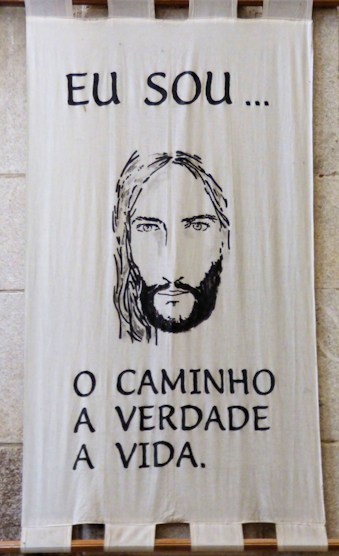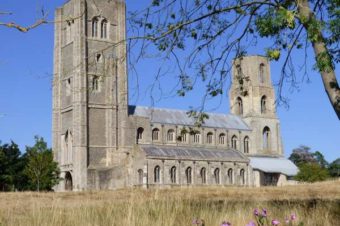 Joy is a strange manifestation in our modern world. I was never quite sure where to place it. People search for happiness and that is understandable for it makes us feel good. Joy seems to operate on a different plane. Happiness comes and as quickly can be taken from us and is replaced by other emotions, but to me the short word of joy contains within it a circle of eternity. At the same time it pairs with its opposite: sorrow. Whereas happiness and sadness in a worldly sense seem to drive one another out, there is a strange sense that joy and sorrow can coexist.
Joy is a strange manifestation in our modern world. I was never quite sure where to place it. People search for happiness and that is understandable for it makes us feel good. Joy seems to operate on a different plane. Happiness comes and as quickly can be taken from us and is replaced by other emotions, but to me the short word of joy contains within it a circle of eternity. At the same time it pairs with its opposite: sorrow. Whereas happiness and sadness in a worldly sense seem to drive one another out, there is a strange sense that joy and sorrow can coexist.
In Celtic Christianity, Lynne Bab, writes about the paradoxes , “The Celtic Christian acceptance of paradox without the need to explain everything can bring a wonderful perspective of lightness and joy.”
In seeking wisdom we might try to explain everything philosophically, scientifically, socially and even commercially but the mystical intermingling of joy and sorrow pairs with the supernatural and the world of spirit. The Psalmist gave us these words that echo alongside those of William Wordsworth in his poem “Surprised by Joy” and is taken up by C S Lewis in his book of that same name on the subject of the loss of his own loved one.
Inez Tan writes about Wordworth’s poem in The Augustine Collective
where she explores this contradiction of joy and sorrow together in more depth using St. Paul’s words. She then ends with a verse from the Psalmist:
“Though the sorrow may last for the night, joy comes in the morning” (Psalm 30:5b).
This kind of joy has all of the mystery and complexity that as Christians we can only assign to God in his wild omniscience.
When the lost word of God was read out to the Jewish nation as Jerusalem’s walls were rebuilt they realised how far they had gone from God’s own pathway for them and started to mourn and weep, but Nehemiah offered them these words as both command and wisdom:
Nehemiah said, “Go and enjoy choice food and sweet drinks, and send some to those who have nothing prepared. This day is holy to our Lord. Do not grieve, for the joy of the LORD is your strength.” (Nehemiah 8:10)
This is a different perspective on the word translated here as joy. Skip Moen writes these words in his blog about the Hebrew scriptures:
“What can it mean to suggest that God Himself experiences joy – and that this is the basis of our strength? The text doesn’t offer much help since the word occurs only twice. We will have to look deeper. The pictograph provides a clue. Hedvah is a noun derived from the verb hadah. The consonants are chet-dalet-hey. The picture is “behold, a door in the fence.” Now we see. What is the joy of YHWH? It is the gladness of providing a door in the fence – a path for coming into His presence. What cheers our Lord? A way in. God rejoices that there is a door for us to come into fellowship with Him. We are not shut out for He has provided a way back. The joy of YHWH is that He can fellowship with us!”
The key to unlocking this into an expression of our own joy is that it is not our joy at all. It is God’s joy; it is his joy to own his people, to cherish them, to forgive them, to pour out his grace on them: that unmerited favour that defies understanding. It is going to always be his joy that gives us the strength to hold that sorrow and joy in a paradoxical balance that means both are bearable. Surely unbearable joy is God’s domain and we can draw comfort and strength from him.
Joy is something we can experience in or out of any knowledge of God’s love for us and his joy over us, but we always need to ask the hard questions. As we approach remembrance day I was reminded some years ago of this memory of the great war from “From A Broken World: Letters, diaries and memories of the Great War” edited by Sebastian Faulks and Dr Hope Wolf. It echoes the psalmist:
“I did not hate the enemy. I was as full of pity for those scattered bundles which had been men in their grey-green uniform, as I was for our own dead.
In their pockets the same photographs of themselves smiling in all the pride of their new uniforms, full of youth…
“I had turned back from the battle line, I was stumbling along the communication trench, cluttered with dead, wounded on stretchers and all sorts of equipment. The rifle bullets still spat and whined overhead but the cannonade had subsided. The stars paled overhead and dawn broke. A thin, chill mist lay over the desolate waste of pit banks and slag tips: a wilderness of death and destruction. And then, suddenly, from behind a pink cloud, the sun rose blood red, the warm rays seemed to fill me with new life and hope and courage … And somehow there was joy in the morning.”
Joy is a gateway we can pass through in Jesus, but at the same time we may cross those fields of sorrow that lead us there.







